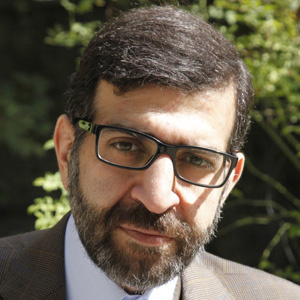The Mysteries of Resolution 598

Years of service in war-related institutions have instilled in me the belief that we should not overlook the realities of those days which witnessed the phenomenal devotion of Iranians. The process leading to acceptance of UN Resolution 598, as one example, is filled with a myriad of memories: sweet dreams disturbed after the fall of Shah, Imperialism’s attempt to crush Iran’s resistance through the attacking of cities and bombarding strategic economic infrastructures; the impeding of Iran’s oil exports and investing in the Mojahedin-e Khalgh (MEK) terrorist group, the assassination of Iranian officials, launching the Tanker War and attacking IranAir Airbus 655, or the setting of unilateral sanctions.
Even after acceptance of the resolution, one of the brightest chapters of the war was people’s unity in Operation Mersad (Watch-Tower) and the lesson it taught Saddam’s Army and his puppets in the Mojahedin-e Khalgh Organization (by repelling the latter’s pathetic attack against the western region of the country). The circumstances during that period –in which the Islamic Republic adjusted its strategy to weather the time of crisis- require a political and historical pathology. In the last years of war, a new wave of attacks against Iran was launched with the direct organization and intervention of global powers determined to paralyze Iran’s war machine. In the meantime, in the UN Security Council, foreign powers were trying to force upon Iran an unacceptable resolution that aimed to undermine Iran’s military capabilities and impose an armed peace while large parts of Iran were still under Iraqi occupation—not unlike the Palestinians’ state today. Iran embraced the resolution only when it engaged in a direct face-off with the United States (as Saddam Hussein’s key supporter), some European states (such as France and Germany), the Soviet Union and regional Arab states (such as Kuwait and Saudi Arabia who blatantly supported Iraq).
The fateful decision to accept Resolution 598 could be called one of the most important –or the most important- diplomatic decision Iran made vis-à-vis the international community, for which credit should go to Ayatollah Khomeini. Iranian officials discussed the articles of the resolution for more than one year, and intensive negotiations were held between Iranian diplomacy experts and the United Nations in order to transform the resolution from its initial form into one that benefited Iran. The deceptive sense of self-confidence Saddam Hossein had gained throughout those years (due to West’s support) emboldened him to use chemical weapons against Iranian troops or even worse, use them against Iraqi Kurds in the city of Halabja. His ferocious style distorted the military face of the war and moved it into a new phase. Saddam’s genocidal attacks –aggravated with the tacit approval of Western and Arab states- had left Iran no choice but to accept the resolution.
The sacrifice and glorious resistance of the Iranian nation, matched with diplomatic efforts in international organizations, bore fruit in 1990 when the then Secretary General of the UN, Javier Perez De Cuellar, officially announced Iraq as the aggressor party. Another achievement of Iran’s diplomatic apparatus was Saddam’s acknowledgment of the 1975 Algiers Accord, which he had arrogantly rejected before he launched his war against Iran.
Nevertheless, there are overlooked articles in the UN resolution that call for closer examination today: Should we be prioritizing receiving reparations for the war in our relations with the new Iraqi regime? And how should we deal with the issue of the MEK’s presence in Iraq? These are issues demanding serious consideration, and ignoring them is tantamount to undermining our security.

